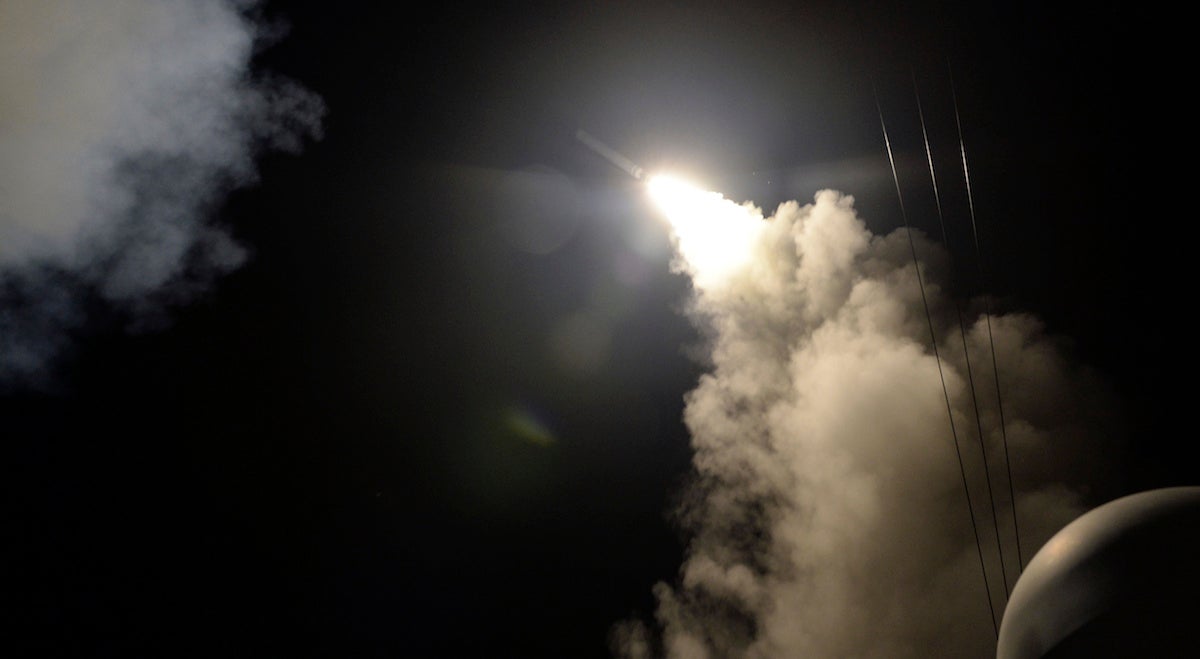On ‘Radio Times’: Foreign policy challenges facing President Trump

In this image provided by the U.S. Navy, the guided-missile destroyer USS Porter (DDG 78) launches a tomahawk land attack missile in the Mediterranean Sea, Friday, April 7, 2017. The United States blasted a Syrian air base with a barrage of cruise missiles in fiery retaliation for this week's gruesome chemical weapons attack against civilians. (Mass Communication Specialist 3rd Class Ford Williams/U.S. Navy via AP)
The air strikes ordered by President Donald Trump against a Syrian military base last week have raised questions about U.S. policy in that country’s civil war.
This morning on “Radio Times,” Marty Moss-Coane talked with former Army Colonel Andrew Bacevich and long-time journalist James Kitfield about the disturbing images of suffering civilians and the implications for U.S. foreign policy.
In this segment, Kitfield talked about the creation of a safe zone to protect Syrian civilians from chemical weapons and barrel bombs. “That obviously is a much greater commitment,” Kitfield said. “That would be at least a rational response to someone who is killing his own people.”
For more on a discussion about the foreign policy challenges facing the new Trump administration, listen to Monday’s “Radio Times“.
WHYY is your source for fact-based, in-depth journalism and information. As a nonprofit organization, we rely on financial support from readers like you. Please give today.

